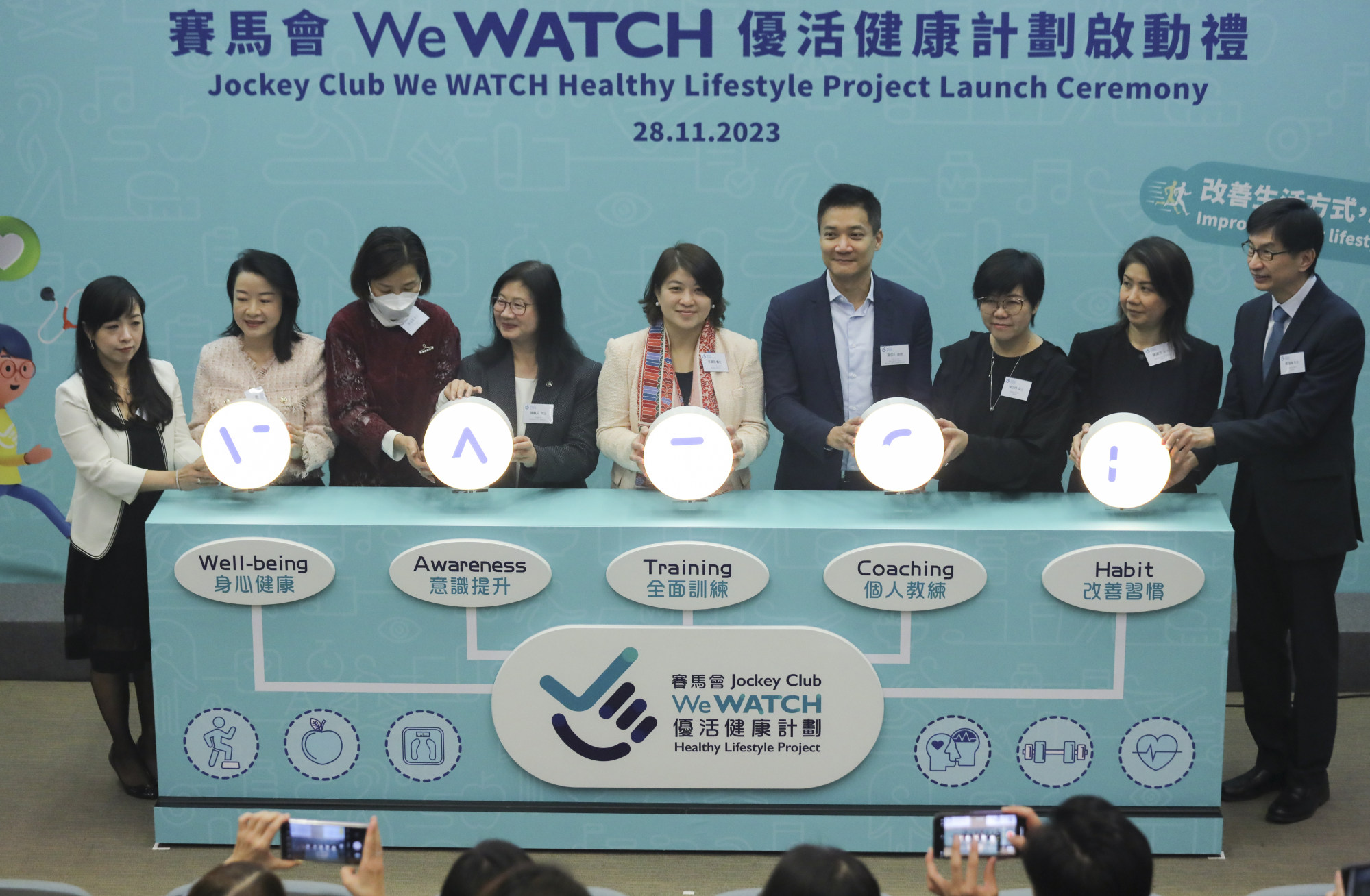
20,000 middle-aged Hongkongers can benefit from university programme offering free health screenings for chronic diseases
- Third of the 6,700 tested people are at high risk of developing chronic diseases, university programme finds
- ‘We have noticed an increase in chronic diseases among people reaching middle age,’ professor says
More than 20,000 Hongkongers aged between 35 and 59 can benefit from a local university programme offering free health screenings for chronic diseases and personalised health coaching for those at high risk.
In a trial that kicked off in April, the Jockey Club We WATCH Healthy Lifestyle Project launched by Chinese University (CUHK) found that a third of more than 6,700 people from the age group were at high risk of developing chronic illnesses.
“In Hong Kong’s population health survey conducted between 2014 and 2020, we noticed an increase in chronic diseases among people reaching middle age,” said Professor Samuel Wong Yeung-shan, director of the university’s public health and primary care school.
“We realised that people need to take some actions when they reach middle age to prevent high risks of chronic illnesses.”

Wong said the project was Hong Kong’s first public health initiative to adopt lifestyle medicine in preventing chronic diseases.
“We know that it is not easy to make lifestyle changes when you spend so much time at work every day,” he said. “It is not effective to simply ask people to eat healthier and exercise more without knowing about their day-to-day lives.
“Thus, lifestyle changes require the help of people who are trained and have the heart to achieve some goals with the participants, rather than simply asking them to stop doing this and that. We need to understand the person, their lifestyle, and what matters to them first.”

The free programme is co-organised by CUHK and four NGOs and funded by the Hong Kong Jockey Club Charities Trust. It is set to run for three years to 2025, with the aim of conducting health-risk screening for more than 20,000 people.
People aged between 35 and 59 who are not diagnosed with any chronic diseases, do not require regular medication and are not participants of other health management schemes are eligible to enrol in the programme.
Participants will first receive a health-risk screening to assess their chronic illness risks. If they are at high risk, they will undergo blood and blood pressure tests.
Those whose results have not reached diagnostic levels will then pair up with a health coach to assess their lifestyle, formulate their goals and set out an action plan for improvement. Participants will have regular meetings with the coach for a six-month period.
Activities focusing on exercise, mental health and nutrition at the NGOs also will be arranged for the participants.
People diagnosed with diabetes, high blood lipids or hypertension by the programme will receive a health report for them to seek medical help.
Of the 6,700 people who underwent health-risk screenings, 2,300 are at high risk of developing chronic diseases. Around 95 per cent of them are eligible for health coaching.

Cindy Tse Wai-han, who is in her fifties, was one of those who joined the trial in April. Before that, Tse who rarely exercised had central obesity and suffered from insomnia for around two years.
“The difficulties I faced in the past were that no one monitoring or guiding me to exercise,” the marketing worker said.
“Many people may face the problem of having limited time to exercise. My coach will help me look into my schedule and find a gap for exercise.
“My coach taught me that exercise does not necessarily mean running outdoors or visiting the gym. She asked me to exercise for five to 10 minutes first and build up the intensity and duration gradually.”
Tse said she now enjoyed exercising for 30 to 80 minutes per day and no longer had insomnia, adding that her weight had dropped by 18 pounds (8.2kg) and various indicators for health risks had also been reduced.

